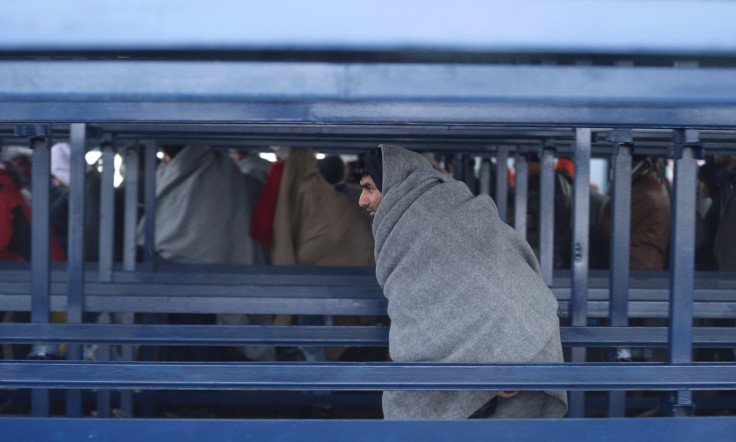Thousands of refugees braced for cold winter as UN funds shortfall pushes more to Europe

Thousands of people who fled war in Syria and Iraq are forced to migrate to Europe because the UN is struggling to help them due to a shortfall in funding, UN officials said. Aid agencies are making last-minute appeals for more money, as refugees' poor living conditions are to be exacerbated by the approaching winter.
The issue is particularly serious in Iraq, where thousands of displaced families are facing the prospect of a winter in the cold as the world body can't provide heating kerosene to everyone. Antonio Guterres, the UN High Commissioner for Refugees, described the UN money-problem as "the trigger" for the refugee crisis in the Mediterranean.
"The international multilateral humanitarian community, even when combining all its resources, is no longer able to provide the core protection and basic life-saving assistance," he said, explaining that global humanitarian budgets aren't enough "to cover even the bare minimum". "We are starting to see what happens as a result of that," he added.
Syria
With less than two months to the end of 2015, the total of state contributions' to UN-coordinated response plans in Iraq and Syria is significantly lower than the amount collected in 2014 and is expected to fall well short of requirements.
By 5 November, world nations have given a total of $4.4bn (£2.8bn) to help Syrians within their own and neighbouring countries – $700m less than the total collected in 2014, according to the UN Financial Tracking Service.
"The Syrian programme has been chronically underfunded for years but it has been very bad this year," Ariane Rummery, a spokeswoman for the UN refugee agency (UNHCR), told IBTimes UK. The thin budget affected not only UNHCR operations but those of the dozens humanitarian agencies that share the money to provide a coordinate response.
In July, the World Food Programme (WFP) had to slash its assistance for refugees in Lebanon and Jordan. In Jordan most Syrians were subsequently forced to get by with $7 a month. It got worse in September when WFP had to cut off aid completely to 229,000 people.
Rummery said the situation has since improved, as the issue has been brought to the attention of European governments by the mass arrival of asylum seekers on their shores.
Donations have increased significantly in recent weeks and the UNHCR winter plan for Syria is now almost completely funded, she said. "As the high commissioner said, when the poor turn up in the house of the rich, the rich start to notice," she said.
Iraq
Conditions are worse in Iraq, where only $710m has been so far collected against the $1.1bn raised in 2014, leaving the response plan only 59% funded.
Bruno Geddo, the UNHCR chief in the country, told IBTimes UK the agency currently has enough money to heat the tents of only 17,000 of the 60,000 (about 360,000 people) uprooted Iraqi families it is supposed to assist. Some 20,000 Syrian families living in the country were also facing a winter without fuel, he added.
The kerosene shortage will be particularly felt in the northern Kurdistan region that experiences snow and below-zero temperatures and currently hosts most refugees and one third of internally displaced Iraqis.
Geddo said the UNHCR was appealing to the Iraqi government to repeat last year's donation of 12 million litres of fuel to displaced Iraqis, which helped them stay warm in the winter months.
The government ability to respond however might resent from the fall of oil prices that has badly affected Baghdad's budget.
Like Guterres, Geddo also maintained that failures in humanitarian assistance were helping fuel the "general sense of despair" that has pushed many Iraqis to leave the country.
Europe
Mass migration has in turn brought part of the UNHCR problems to Europe. On 5 November, the refugee agency has to appeal for an additional $96m to help refugees in Greece and the Balkans through winter.
"Harsh weather conditions in the region are likely to exacerbate the suffering of the thousands of refugees and migrants landing in Greece and travelling through the Balkans, and may result in further loss of life if adequate measures are not taken urgently," UNHCR said, adding it would use the money to set up shelters and provide raincoats, blankets and basic relief items. "UNHCR's new winter plan anticipates that there could be up to 5,000 arrivals per day from Turkey between November 2015 and February 2016".
Syrians and Iraqis together make up 58% of the more than 750,000 asylum-seekers that have reached European shores in 2015.
© Copyright IBTimes 2025. All rights reserved.






















